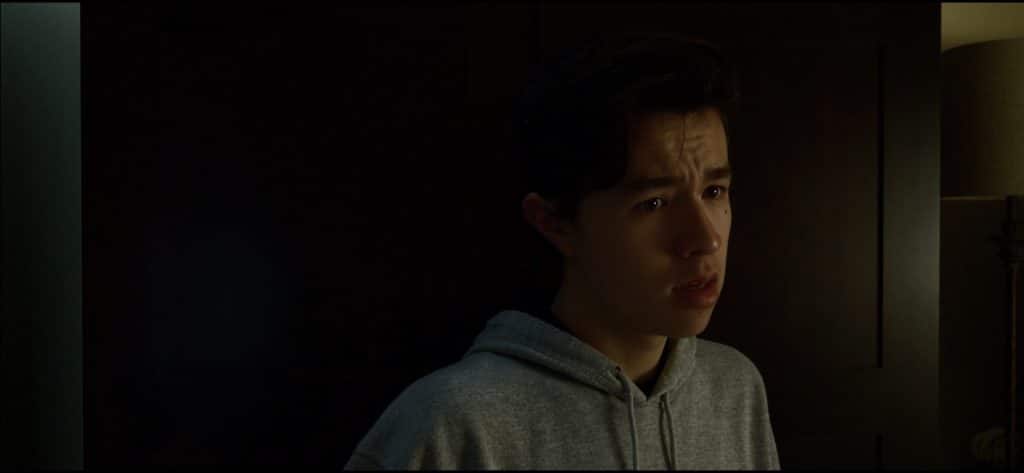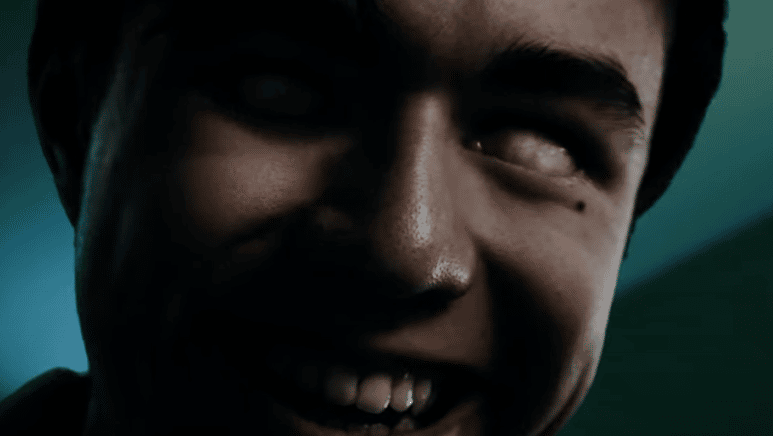The opportunity to watch and review short films continues to be one of the key motivations behind Warped Perspective. Yes, we keep saying it, but it’s true. This is such a golden opportunity to get to see calling cards from new, exciting filmmakers, tasked with getting their message across, or in some way communicating a punchline against the potential obstacles of time, money and means. So often, the calibre of storytelling across ten brief minutes feels like it counts for more than a tepid two hours; brevity really is the soul of wit, and for filmmakers who make the leap from short films to features – please don’t forget all the lessons you once needed to know inside out, as the potential to dilute all of the things which make your work great is very real. As ever, it’s a great shame that we still see comparatively so little of short films, or else we just don’t get to see them that often outside of a festival run. However, could that be changing? I won’t be featuring them here right now, as with Netflix money and influence behind them, it would be less a signal boost and just more white noise, but the very existence of Love, Death and Robots shows that there is an appetite for short films (and they really are excellent). There’s also a great streaming platform which caters to short horror films: check out Alter, which also has a YouTube channel, and which offers a great roster of titles – some of which we’ve covered and support wholeheartedly.
In the meantime, here’s a quick recap on some of the best short films of 2023. I hope you get to catch up with them; I hope the teams behind them go from strength to strength; I look forward to seeing what they will be doing next.
Everybody Goes To The Hospital
Everybody Goes to the Hospital starts innocuously enough, or it seems to: the presence of stop-motion animation, the use of a voiceover – it could all have been so innocent, and yes – it tells a story of childhood, but it quickly becomes apparent that this is a story of trauma, made all the more affecting as it retains its child’s perspective throughout, explaining events on screen as if from the point of view of the child affected. Being a child, being spoken for or talked over by adults and yet being entirely dependent on them, is scary; the film perfectly encapsulates that in its story of illness, hospitalisation and a life hanging in the balance.
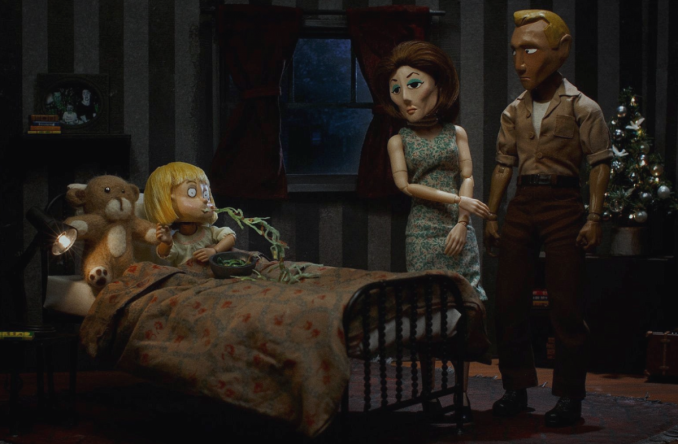
Lucienne in a World Without Solitude
A smart example of a short film which immediately immerses you in a bizarre scenario, but makes you understand the normality of it all at the cost of your own sure-fire normality, Lucienne dans un monde sans solitude is a recognisable enough, small French coastal town – which is part of a world where everyone, absolutely everyone, has a twin. It’s just the way it is. Not only that, but it would be completely unimaginable to appear out in public without your twin; pity, then, that we meet Lucienne on the point of a break-up with her partner, Paul. It seems amicable, but the logistics of this are quite something. Paul, it seems, has lost his twin: this is unfathomable, subversive, even. In the pursuit of the ‘right’ kind of outcome, Lucienne (and her sister of course) find themselves on the trail of a bizarre, unidentified man – a man walking the streets without his sibling. Visually brilliant and gently compelling, this is a mesmerising short story which teases questions of individuality which we take for granted.
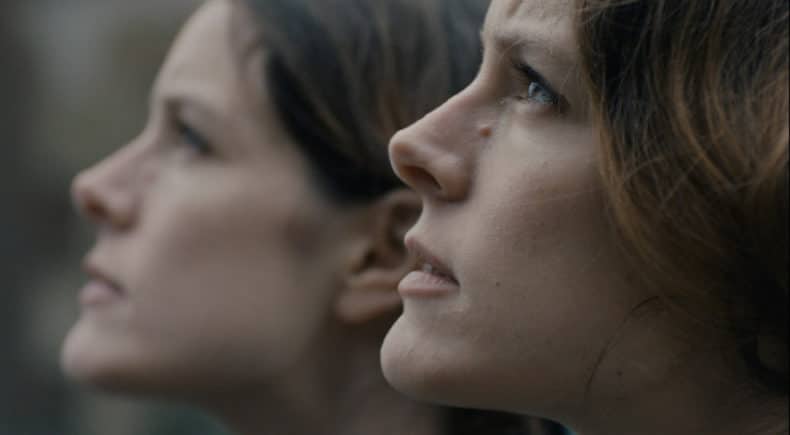
Scooter
A bad date turns into a strange expedition which turns into…well, something which obliterates the simple memory of a bad date in Scooter, where Adrienne is dumped in the middle of the night by a lousy boyfriend, and has to find a way to get home – by herself, by night. If the red flags here seem a little obvious, then forget it: the resulting story has humour, it develops in quite unexpected ways and it ratchets up the pace by performing an effective bait-and-switch. Adrienne isn’t just getting home: now, faced with the unexpected, she has work to do. Nicely done, with a plausible set-up and dialogue which leads us to want to follow wherever our lead character goes.
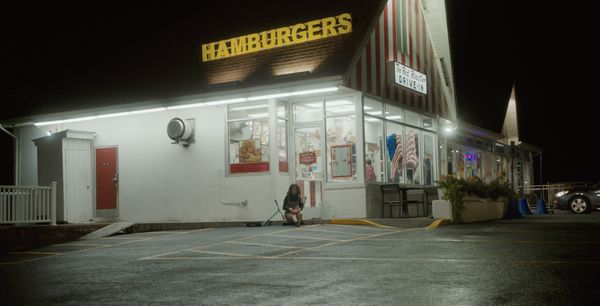
Kiddo
Kiddo is one of those films which, with a few carefully-realised lines of dialogue, makes you reassess everything you have seen up until the credits roll. It’s very clever, and it makes a few devastatingly effective points about our lived environment and how we behave within it – within our homes, our places of work, and within the wider area. Who is ‘Kiddo’? Why is she referred to by that nickname, particularly given how little it suits her? She’s an older woman; she’s the only older woman in the film. As relationships and ideas unfold, you realise that this is a simple but haunting piece of storytelling. The film will be available on Alter in a few short days (29th December).
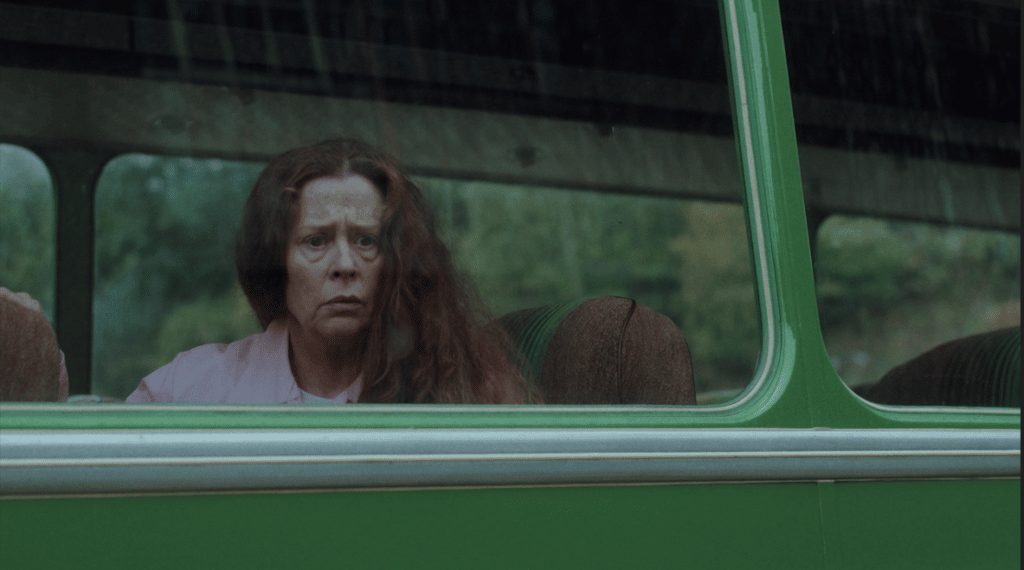
Shut
Playing with ideas of personal perspectives, Shut at first seems to suggest that Jonas’s elderly father, Arend, is ill – or in some way incapacitated, certainly unable to recognise his son when he arrives, and seemingly racked with paranoia about life in his remote homestead. It is always worth reserving judgement, however, and as the film backfills its story, supplying us with Arend’s thought processes and what has brought us to this point, and things become devastatingly uncertain. At its core, Shut works well because it shows us people who do, ultimately, care about one another; that is what makes their predicament so impossible.
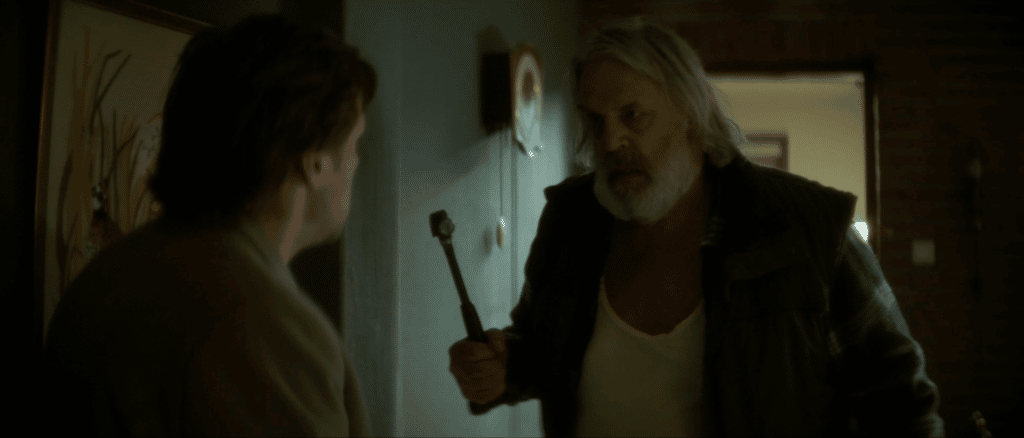
Smahorror
Two things spring to mind here: firstly, that Smahorror‘s subject matter (a live-streamed suicide, and the subsequent waves of urban legend which begin to amass) is not all that unusual today. We recognise the role of technology and social media in our most profound miseries; horror is already pretty damn good at exploiting this potential. Secondly, for a while there Western horror was absolutely inundated with successful Far Eastern horror, after Ringu (1998) almost single-handedly broke down the barriers. We even had a specific name for Japanese horror cinema, so much of it was crossing into Western markets and fandoms: J-Horror. But, whilst J-Horror (and films from other Far Eastern countries) continue to be made, the rate of crossover in the West has drastically slowed. Step forward, then, Japanese filmmaker Masaki Nishiyama, whose short film Smahorror covers reasonably familiar territory from a recognisable, even classic J-Horror perspective, but manages to make it feel fresh and invigorating. Oh, and at the time of writing, he’s twenty-three years old. This is a smart film which gets an abundant amount done in a short timeframe, and it deserves full credit for that.
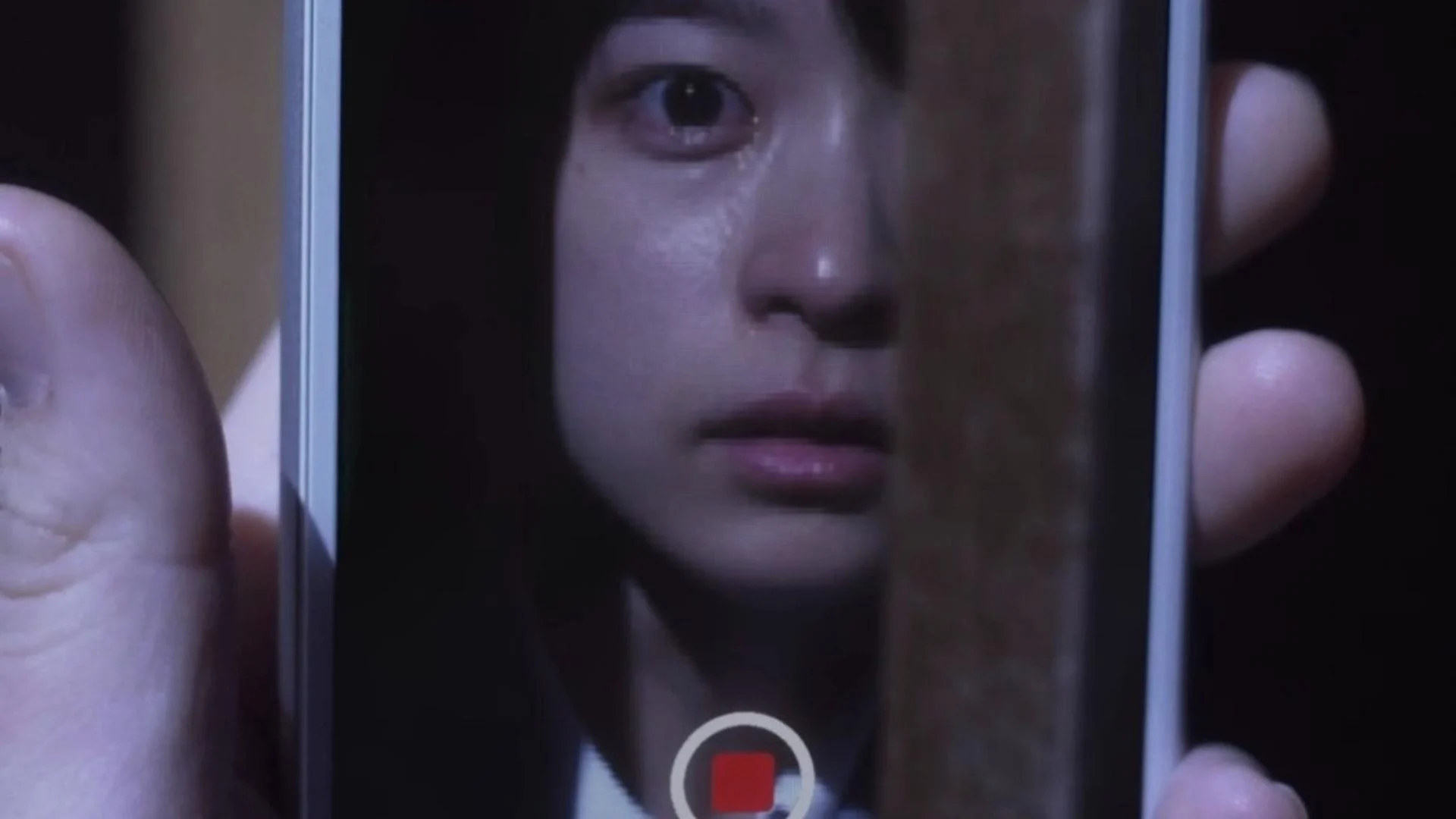
Daughters of Witches
On occasion, you could be forgiven for hearing the term ‘folk horror’ and having your mind jump immediately to the English Civil War era; of course, in fact, folk horror depends entirely on the folk. This Mexican short film plays very effectively with the idea that folkish belief cares not a jot if you deviate from it or forget about it; it’ll be there, waiting, with the potential to go horribly, horribly awry if you happen to have forgotten the rules. New mother Clara lives in the US now, but she takes her baby back to her old village to take part in a traditional ritual, to give her baby daughter spiritual protection. Clara is dubious; could this rite really work? Or could it be as dangerous to her child as the risks it is meant to banish? The ritual goes ahead, by night, but there is something not quite right here…
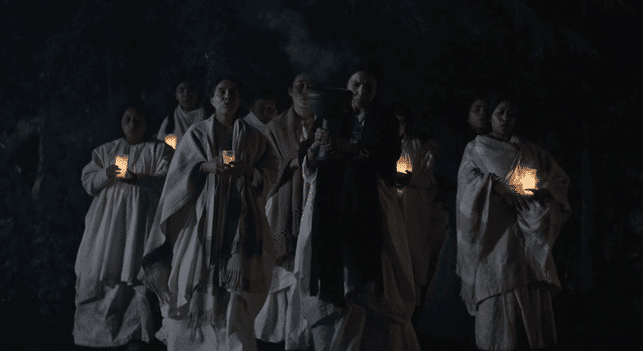
Darker
Darker (Donkerster) does a careful job of putting together its own fascinating, heart-rending mythology. Elements of it feel familiar, but brought together here it feels like it can more than stand alone. A little girl called Rhena enjoys hearing bedtime stories from her beloved father: he tells her that there’s a tree called Atlas where the life stories of living things can be found. The dead seek Atlas out, to preserve their own stories. So, when Rhena’s father disappears, she cannot prevent herself trying to find him – and trying to find the tree, so that she can be near him again. It’s an interesting, not to mention aesthetically beautiful film, which understands something of the way folklore and real life feelings and obsessions overlap.
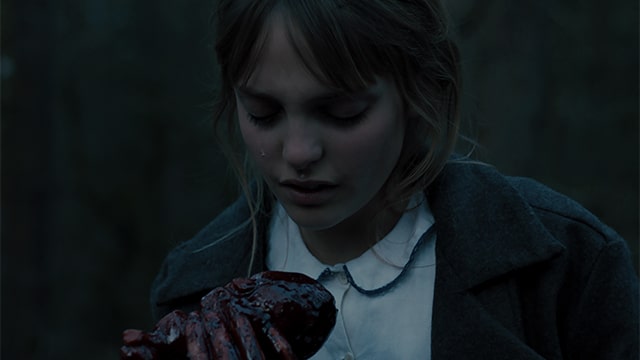
Lips
Lips manages to combine a very British sense of humour with a very British sense of horror. To be clear, a lot of what makes the British laugh is when pure, irritating inconvenience happens to other people – so when Michael is simply hoping for a quiet pint and a quiet read in a quiet pub, the arrival of a man simply determined to strike up conversation establishes a source of annoyance which many of us would recognise. And, oh god, he has no shoes and socks on; he’s probably mad. Or is he? The story he unfolds to Michael could point either way, to be honest, but the real issue is this: what if what he’s saying is…true? The ways in which Lips gradually ramps up its narrative is funny, icky and memorably extraordinary. If your curiosity is piqued, you can watch the film itself here.
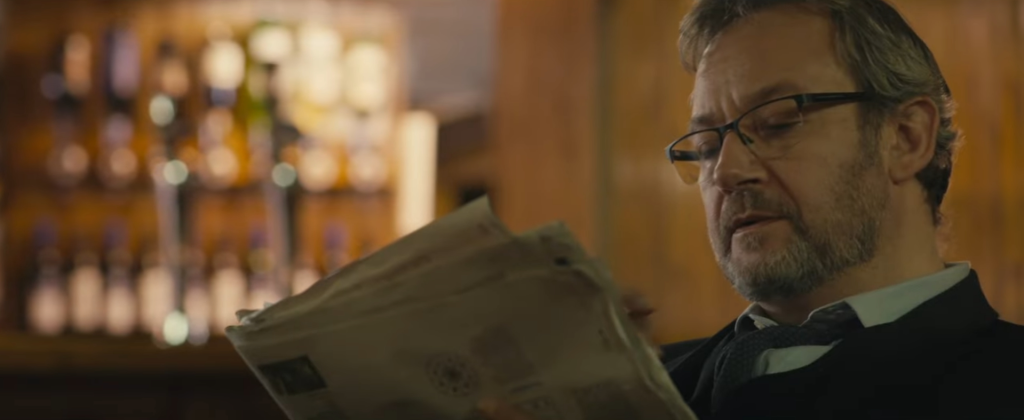
Spare Body
Spare Body is a simple and grotesque idea which has enough about it to generate a deep shiver down the spine. It also bases this moment of acute horror on a premise which reflects our ‘buy anything, anytime’ ethos, with parcels and packages arriving at our doors on an almost daily basis. You can buy almost anything. Well, moving from that, it seems that , in the world of the film, you can order something which has the slogan Second Lives Now Possible; this presents a very upsetting evening’s work for a teenager who gets curious about the parcel hidden in his parents’ wardrobe…
